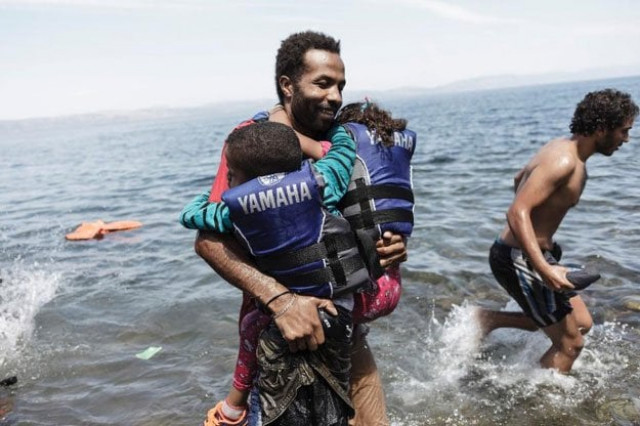Managing the migrant stream
What to do with illegal immigrants has become an issue within an issue

A migrant carries his two children as he gets off an inflatable boat after arriving on the Greek island of Lesbos after crossing the Aegean sea from Turkey on August 14, 2015 PHOTO: AFP
What to do with illegal immigrants has become an issue within an issue. The EU needs to manage the flow as best as it can and has been deporting illegal immigrants to a range of countries and not only Pakistan. Pakistan has in the past protested that some of those it was asked to receive as deportees had not been verified as Pakistani citizens in the first place; and some that had been inappropriately described as having connections to terrorism had themselves been illegally deported by the EU itself. Now, the EU and Pakistan have agreed a set of protocols that satisfy the demands of Pakistan in terms of deportations, a development that has received an endorsement from Interior Minister Chaudhry Nisar. This is not the first time that ‘agreement’ over this matter is said to have been reached, and it is to be hoped that the latest agreement is both durable and workable to the satisfaction of all sides because this is a problem that has the potential to get worse rather than better. The EU has now agreed to the verification process proposed by the Interior Ministry in line with the Readmission Accord. It now remains to be seen whether all sides are able to effectively implement what are complex procedures in a timely manner, and a diplomatic ‘incident’ with deportees shuttling to-and-fro, avoided.
Published in The Express Tribune, February 10th, 2016.
Like Opinion & Editorial on Facebook, follow @ETOpEd on Twitter to receive all updates on all our daily pieces.














COMMENTS
Comments are moderated and generally will be posted if they are on-topic and not abusive.
For more information, please see our Comments FAQ